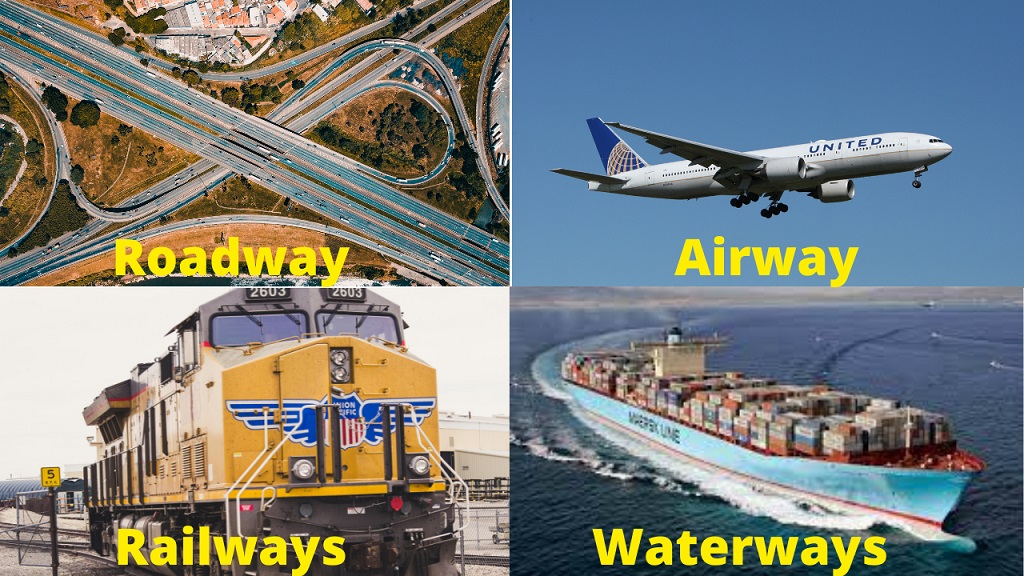
From horse-drawn carriages to hyperloop trains, the evolution of transportation has shaped the way we navigate our world. In this article, we’ll take a fascinating journey through the realm of modern transportation methods. Buckle up as we delve into the advancements that have revolutionized how we move from point A to point B. This article is presented by Localvaluemagazine.com.
Navigating the Future
Transportation has come a long way since the days of footpaths and dirt roads. The rapid pace of technological innovation has given rise to an array of modern transportation methods that are faster, safer, and more efficient than ever before.
The Rise of Electric Vehicles (EVs)
Electric vehicles have sparked a transportation revolution of their own. With zero tailpipe emissions and lower operational costs, EVs are becoming increasingly popular. They’re not just limited to cars; electric buses, bikes, and scooters are also making their mark on city streets. Discover modern transport solutions.
Embracing Ride-Sharing Services
Ride-sharing platforms like Uber and Lyft have disrupted traditional taxi services. These services provide the convenience of on-demand transportation at the tap of a button. They’ve not only changed how we travel but have also had a significant impact on urban traffic patterns.
Soaring to New Heights: Aviation Innovations
The aviation industry continues to push boundaries with cutting-edge technologies. Supersonic jets aim to reduce travel time significantly, while companies like SpaceX are exploring the possibility of commercial space travel. These advancements redefine the scope of human mobility.
The Intriguing Concept of Hyperloop
Imagine traveling at nearly supersonic speeds through low-pressure tubes. This is the essence of the hyperloop concept. Proposed by Elon Musk, this transportation method has the potential to revolutionize long-distance travel, making it faster and more energy-efficient.
Navigating the Seas: High-Tech Maritime
Modern transportation isn’t just about land and air; it’s about the seas too. Autonomous ships and advanced navigation systems have transformed maritime travel and trade. These innovations not only enhance efficiency but also reduce the ecological footprint of shipping.
Pedal Power: Cycling in the Modern Age
Cycling has transcended its traditional role as a recreational activity. With dedicated bike lanes, bike-sharing programs, and electric bicycles, cycling is now a viable mode of transportation for short distances. It’s not only environmentally friendly but also promotes a healthier lifestyle.
The Evolution of Public Transit
Public transit systems have undergone a remarkable transformation. Innovations like contactless payment systems, real-time tracking, and route optimization apps have made using public transportation more convenient and user-friendly than ever.
Balancing Act: Personal Mobility Devices
Personal mobility devices, such as electric scooters and self-balancing hoverboards, have become increasingly popular for short commutes. These compact devices offer a fun and efficient way to navigate urban environments.
Conclusion: Navigating Tomorrow
As we reflect on the incredible advancements in modern transportation methods, it’s clear that we are on the brink of a transportation revolution. From electric vehicles that glide silently through our cities, reducing emissions and dependence on fossil fuels, to hyperloop trains that could propel us at incredible speeds through low-pressure tubes, each innovation brings us closer to a more connected and sustainable future. In this era of progress, transportation isn’t limited to just one domain; it encompasses various modes that operate across types of transport: air, sea, and land. Electric cars and scooters are transforming urban mobility, drones for delivery are reshaping logistics, while high-speed trains are making cross-country travel faster and more efficient. As we explore these advancements, it’s evident that sustainable transportation isn’t just a concept anymore; it’s a reality powered by smart transportation and fueled by the drive for a greener tomorrow.
FAQs
- Are electric vehicles more cost-effective than traditional gas-powered cars?
Absolutely. Electric vehicles have lower operational and maintenance costs, making them a financially savvy choice in the long run.
- How does the hyperloop concept ensure passenger safety?
The hyperloop design incorporates multiple safety measures, including emergency braking systems and reinforced tube materials to protect against accidents.
- What impact do ride-sharing services have on traffic congestion?
While they initially contributed to increased congestion, many studies suggest that ride-sharing services have led to a reduction in private car ownership, ultimately easing traffic.
- Are personal mobility devices legal everywhere?
Regulations vary by location, but many cities have embraced personal mobility devices and have established guidelines for their safe use.
- Will aviation innovations make air travel more sustainable?
Efforts are being made to develop more fuel-efficient aircraft and explore alternative propulsion systems, with the aim of reducing the aviation industry’s carbon footprint.

